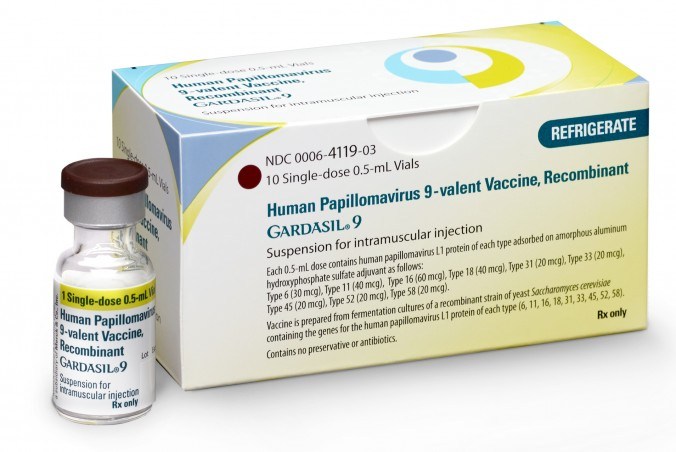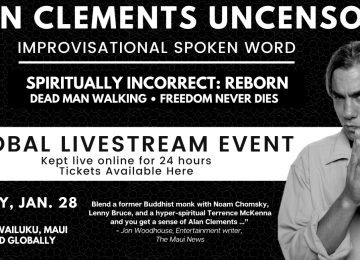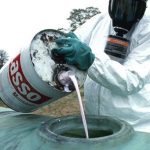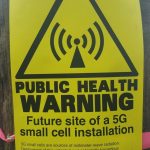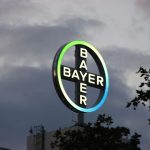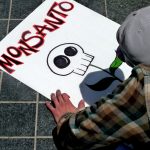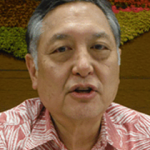After a public outcry in 2016 against a bill sponsored by Maui’s Senator Roz Baker to mandate the controversial HPV vaccine for Hawaii’s children, led to the bill being shelved, the state’s Department of Health (DOH) is now attempting to force the vaccine on school kids.
The DOH announced children in the state must receive the vaccine, plus two additional vaccines, if they want to attend public school.
“If the child is not up to date, then the child will be excluded from school,” announced DOH Imunization Branch Chief Ronald Balajadia, adding, “the religious exemptions are still in existence so families that already have utilized that process definitely are able to do that.”
Public testimony about the vaccine change can be submitted to the DOH by email – immunization@doh.hawaii.gov, by 4 p.m. on December 26.
State Senator Russell Ruderman has protested to the DOH about the vaccination increase. “Proposing to increase required vaccines to the highest number in our most-vaccinated nation is irresponsible,” he reported. “I am not anti-vaccine. I am against mandatory medical procedures of any kind. The ungodly reach of the pharma industry is using you as a marketing tool. You must find the integrity and strength to oppose this. Forced injections of any kind call to mind the ‘experiments’ of the nazi government in the past.”
“This is not hyperbole; this is what you are doing to innocent, healthy people. Forced injections, that include known toxins such as the heavy metals in the euphemistically named ‘adjuvants’ in most vaccines, are even more offensive to those of us who value the American ideal of freedom.”
While the C.D.C. and international government bodies have promoted the vaccine’s safety, there is compelling evidence that vaccine manufacturer Merck conducted shoddy, questionable clinical trials; and that a number of individuals around the world have suffered drastic health consequences post HPV vaccination.
With state health departments around the nation in tandem with the C.D.C. promoting the HPV vaccine for children – which supposedly prevents genital warts and cervical cancer caused by the sexually transmitted HPV virus – is it any wonder that most parents comply with the mandate.
What parents may not know is that the vaccine has resulted in thousands of adverse event (AE) reports around the world. An AE is a health complaint that has likely been precipitated by the vaccination.
The Vigibase database of the World Health Organization has compiled more than 86,000 serious adverse event reports for Merck’s HPV vaccine. They include nervous system disorders (39,092), respiratory, thoracic and mediastinal disorders (6060), vascular disorders (5766), nervous system disorders (39,092), reproductive system and breast disorders (3267), cardiac disorders (2604), and blood and lymphatic system disorders (2035).
Among 12 – 17 year olds, 45,000 adverse events have been reported.
The number of AE’s reported for HPV vaccines, in each country, are overwhelmingly higher than that for other vaccines. But national health authorities and medical professionals continue to deny any causal relationship between HPV vaccines and AE’s.
Gardasil is the most popular HPV vaccine. Manufactured by Merck, it is the company’s top selling vaccine bringing in $1.7 billion in sales. With such massive sales is it any wonder any attempts to raise safety issues are routinely dismissed, contrary to compelling evidence.
And is worth noting that Dr. Julie Gerberding, who approved Gardasil when she was director of the C.D.C., was subsequently hired by Merck in 2010, as president of Merck Vaccines. In 2015 she made more than $2 million selling Merck shares.
While U.S. citizens are prohibited by law from suing vaccine manufacturers, lawsuits have been launched in Japan, France, Ireland, Spain, and Columbia claiming HPV vaccine harm. In the U.S. one can apply for compensation for harm under the National Vaccine Injury Compensation Program.
Under the Freedom of Information Act, in 2013 Judicial Watch received documents from the Department of Health and Human Services (HHS) revealing that its National Vaccine Injury Compensation Program has awarded more than $5 million to 49 victims in claims made against the HPV vaccine.
Judicial Watch also received documents, under the Freedom of Information Act, from the U.S. Food and Drug Administration (FDA) detailing reports of adverse reactions to Gardasil.
The adverse reaction reports detail 26 deaths reported between September 1, 2010 and September 15, 2011 as well as incidents of seizures, paralysis, blindness, pancreatitis, speech problems, short term memory loss and Guillain-Barré Syndrome.
The conservative watchdog points out, “Merck has waged an aggressive lobbying campaign with state governments to mandate this HPV vaccine for young girls.”
There is widespread concern about adverse effects caused by the Gardasil vaccination. They include paralysis, narcolepsy, respiratory dysfunction, cognitive impairment, involuntary movements, blood clots, and a rapid heartbeat.
A 2016 Canadian study looked at over 195,000 girls who had received HPV vaccines. Within 42 days of vaccination, the girls experienced over 20,000 emergency room visits or hospitalizations. But only 198 adverse events were reported.
Also in Canada, in 2012, researchers looked at whether or not serious autoimmune and neurological adverse drug reactions followed HPV vaccinations. They analyzed post-mortem brain tissue specimens from two young women who suffered from cerebral vasculitistype symptoms following vaccination with Gardasil. They concluded: “Our study suggests that HPV vaccines containing HPV-16L1 antigens pose an inherent risk for triggering potentially fatal autoimmune vasculopathies.”
“The fact that many of the symptoms reported to vaccine safety surveillance databases following HPV vaccination are indicative of cerebral vasculitis, but are unrecognized as such (i.e., intense persistent migraines, syncope, seizures, tremors and tingling, myalgia, locomotor abnormalities, psychotic symptoms and cognitive deficits), is a serious concern.”
“It thus appears that in some cases vaccination may be the triggering factor of fatal autoimmune/neurological events.”
The basis for HPV vaccination is its ability to prevent precancerous lesions related to HPV type 16 and 18 infections and the idea that preventing those lesions would prevent cervical cancer. HPV infection can take years (10-30 years) to result in cervical cancer.
That leaves plenty of time for screening, treatment and prevention. Furthermore, 90% of HPV infections are removed from the body by its own immune system and related processes without medical or other consequences within three years. Only a tiny minority leads to cancer.
The FDA licensed Merck’s vaccine as a result of trials that were just three years long.
Dr. Kelly Brogan notes: “In the marketing and licensure of the HPV vaccine, changes to cervical cells have been equated with death. This is called using a “surrogate marker” and in vaccine research, this is considered acceptable because we can’t otherwise prove a non-event is attributable to an intervention. There are leaps in logic and in science inherent in this practice that render conclusions nothing more than false marketing.”
Former neurosurgeon Dr. Russell Blaylock claimed in 2013: “It has never been proven that the HPV vaccine prevents cervical cancer.”
A study by researchers at the University of Texas looked at HPV vaccination data from 2007–2012. The results showed that young women 20 to 26 years of age who received the four-strain Gardasil vaccine were actually more likely than non-HPV-vaccinated women to be infected with high-risk non-vaccine strains of HPV ten years later.
Lawsuits internationally include one against the French manufacturer of Gardasil in 2013, where the court found 50% of the blame for a teenager’s subsequent multiple sclerosis on Gardasil. Two weeks after the first injection, she experienced sensory and motor problems in the upper limbs. Three months after the second injection she was hospitalized.
In Japan in 2010, the government began subsidizing the cost of the HPV vaccine. A study in the Indian Journal of Medical Ethics found: “This was followed by an unexpected increase in serious adverse events. These numbers far exceed those for other vaccines. The adverse effects included seizures, myalgia, arthralgia, motor dysfunction, such as paralysis, muscular weakness, exhaustion and involuntary movements, nausea, vomiting and diarrhea, and respiratory dysfunction.
As to the large number of adverse effects, the study authors speculate that the HPV vaccines, “are designed to maintain an extremely high antibody titre over a long period of time. Since prolonged inflammatory reactions associated with infection are known to cause autoimmune diseases and worsening of autoimmune reactions, longtime antigen stimulation with HPV vaccines might also induce complex autoimmune reactions via a mechanism similar to that seen with prolonged infection.”
The Japanese health ministry subsequently withdrew their official recommendation for the HPV vaccination, on the grounds of, “an undeniable causal relationship between persistent pain and the vaccination.”
The government’s action provoked an international firestorm among health bodies and drug company-aligned lobbyists pushing the vaccine. “The Japanese government must act quickly to reassert control of the message, or risk losing a historic opportunity to save the lives of girls and women in the years ahead,” protested the U.S. Center for Strategic and International Studies.
In 2016, 28 Japanese girls and women suffering side effects from cervical cancer vaccines filed a lawsuit demanding compensation from the state and drug makers at the Tokyo District Court.
The plaintiffs, ranging in age from 15 to 22, said they have experienced a wide range of health problems, including pain all over their bodies and impaired mobility, after receiving HPV vaccines between 2010 and 2013.
According to the health ministry, 2,945 people out of the 3.39 million women who had received the shots by the end of April 2017 reported side effects.
More than 100 affected women in Japan are now suing the vaccine manufacturers and the government.
In Columbia anthropological researcher Mario Lamo-Jiménez, has raised concerns about the side effects of Gardasil, and is assisting attorneys prosecuting the collective action lawsuit filed by 700 women in that country demanding some $160 million in compensation from Merck.
She reported Columbian girls suffering from ASIA syndrome after vaccination, as well as onset of early menopause, where there is a premature ovarian failure and they become sterile, as well as Guillain Barré Syndrome.
A Canadian report by The Toronto Star “found that since 2008, at least 60 Canadians experienced debilitating illnesses after receiving Gardasil,” including, “14-year-old Quebec girl, Annabelle Morin, died two weeks after receiving the second injection of the vaccine.”
In Ireland around 650 girls reported requiring medical intervention or treatment after receiving the HPV vaccine, according to data collected by the State’s medicines watchdog. Ireland accounts for one in five of all reports of suspected adverse reactions against Gardasil in Europe. At this time there are eight cases filed in Ireland’s High Court that relate to the HPV vaccine.
At least 6 Danish women have report they developed chronic health problems during an HPV clinical trial. At Aalborg University Hospital, one of the trial sites in Denmark, Miam Donslund began to experience persistent flu-like symptoms as well as two infections, one of which required hospitalization, shortly after immunization. Stine Sørensen began to experience general discomfort, headaches, and a profound fatigue that often made her miss school after she got her first shot of Gardasil. All the women have one or more agonistic autoantibodies in their bodies.
German scientist Gerd Wallukat noted about the autoantibodies, they reveal “the classical pattern I’ve seen in patients after vaccination.”
In Spain in 2017, the High Court of Justice of Asturias condemned the Asturian Health System for the death of Andrea, a young Spanish girl who died in September 2012 after getting the second shot of the HPV vaccine. The Court admonished the hospitals of Jove and Cabueñes, since they did not diagnose the patient’s pathology before the second shot of the vaccine was supplied which caused the death of the young woman.
When she got the first shot of the HPV vaccine on July 23, 2012, the woman had a headache and breathing difficulty. Although, she suffered from severe asthmatic exarcebation, she got the second shot on August 23, 2012, and worsened. As a result she suffered severe dyspnea and seizures only 12 hours after receiving the vaccine, and died.
British epidemiologist Prof. Tom Jefferson, a global authority on vaccine trial evidence, has cautioned: “The HPV vaccine’s benefits have been hyped and the harms hardly investigated. We have to tread a very careful line, weighing the potential benefits and harms that a vaccine may cause. With HPV, the harms have not been properly studied. It is extremely difficult to publish anything against HPV vaccination. Vaccines have become like a religion.”
Prof. Jefferson reported: “The reason for introducing vaccination against HPV was to prevent cancer. But there is no clinical evidence to prove it will do that.” He also suggested that pharmaceutical companies may hide negative results deep in their trial data and hugely inflate the benefits.”
Public health analysts at Queen Mary University of London have questioned the scientific basis used by the World Health Organization to justify HPV mass vaccination. “It is based on weak evidence and data on long-term efficacy are lacking,” they warned in the Journal of Epidemiology and Community Health. They also noted, “the direct effect of HPV vaccines on the natural history of cervical cancer was not assessed,” and, “Gardasil’s efficacy for the prevention of cervical lesions associated with all known HPV types was very low.”
A 2015 study in the journal Clinical Rheumatology warned that chronic pain conditions are “more frequent after HPV vaccination.” Researcher Dr. Manuel Martinez-Lavin of Mexico’s Instituto Nacional de Cardiología, said that fibromyalgia and postural tachycardia syndrome (PoTS), seem to be linked to the vaccine. “In conclusion, a disabling syndrome of chronic neuropathic pain, fatigue, and autonomic dysfunction may appear after HPV vaccination.”
A review published in 2014 in Autoimmunity Reviews, “On the relationship between human papilloma virus vaccine and autoimmune disease,” pointed out: “Along with the introduction of the HPV vaccines, several cases of onset or exacerbations of autoimmune diseases following the vaccine shot have been reported in the literature and pharmacovigilance databases, triggering concerns about its safety.”
The authors caution that, “the decision to vaccinate with HPV vaccine is a personal decision, not one that must be made for public health. HPV is not a lethal disease in 95% of the infections; and the other 5% are detectable and treatable in the precancerous stage.”
Last year an empirical study confirmed that the inability to sue vaccine manufacturers in U.S. civil courts since 1986 is associated with a decrease in vaccine safety in FDA-approved vaccines after 1986.
Prof. Gayle DeLong found that vaccines licensed after 1986 are associated with approximately 5.2 more reported adverse events per 100,000 vaccine doses than the vaccines that were licensed before the passage of Vaccine Act.
A 2017 investigation by Slate revealed problems with the clinical trials for Gardasil, which was supposed to establish the vaccine’s efficacy and safety before it was approved. The article raises questions about why regulators knowingly accepted the company’s flawed data.
“Interviews with five clinical trial study participants and more than 2,300 pages of documents obtained through freedom-of-information requests from hospitals and health authorities suggest inadequacies built into Merck’s major clinical tests of Gardasil.”
“European health regulators worried about Merck’s methods during a review of the company’s marketing application for Gardasil 9, the latest version of the vaccine, but have not made their concerns public.
“In an internal 2014 EMA report about Gardasil 9 obtained through a freedom-of-information request, senior experts called the company’s approach “unconventional and suboptimal” and said it left some “uncertainty” about the safety results.
“If I were a research subject, I would feel betrayed,” said Trudo Lemmens, a bioethicist and professor of health law and policy at the University of Toronto.
It’s worth remembering that former Merck virologists Stephen A. Krahling and Joan A. Wlochowski, filed a fraud lawsuit against Merck in 2010. The scientists alleged that the efficacy tests for the measles, mumps, rubella vaccine (MMR) were faked. They claimed that over the years the effectiveness of the mumps vaccine declined. In 2014 a federal judge rejected Merck’s motion to dismiss. The lawsuit is still active with the court ruling class certification is due by 2/15/2019.
Slate reported when Dr. Rebecca Chandler, at Läkemedelsverket, the Swedish Medical Products Agency began analyzing Merck’s safety data for Gardasil 9, three girls vaccinated with Gardasil 9 had been diagnosed with POTS (postural orthostatic tachycardia syndrome), and one with CRPS (Complex regional pain syndrome). There were also several cases of neurological disorders. But none of them had been reported by the company as adverse events.
The suspicion that postural orthostatic tachycardia syndrome is related the HPV vaccine comes from a 2015 study by Danish researchers who provided some observational evidence about POTS occurrence after HPV vaccines. The authors stated that they “found a close chronologic association to the vaccination. The study found that the average number of days between vaccination and diagnosing POTS was around 11 days.
POTS normally occurs in approximately 1% of adolescents.
The Norwegian press reported on the case of a 12 years old Norwegian girl, Maria Lysaker Wennersberg, who received the HPV vaccine at school. In April 2015 she was diagnosed with Postural Orthostatic Tachycardia Syndrome which is suspected to be a serious side effect from the vaccine. Most of the time she is now bedridden. Sometimes she faints daily. She has not been able to attend school for the past four and a half years. She has to be pushed in a wheelchair from her bed into the living room.
In May 2016, Professor Peter C. Gøtzsche and Cochran Nordic Deputy Director Karsten Juhl Jørgensen, along with others, filed an official complaint about how the European Medicines Agency (EMA) handled the HPV safety issue.
In 2014, Australian doctors published in the Journal of Investigative Medicine a case study of a series of teens who had entered premature menopause after HPV vaccination – a phenomenon Dr. Little and Dr. Ward described as ordinarily “so rare as to be also unknown.”
The doctors noted – “Long-term follow-up data after HPV vaccination has not surveyed ovarian function, recorded, measured, or analyzed symptoms or signs of dysfunction. Principles of informed consent, population health, and vaccine confidence require careful, rigorous and independent research to establish ovarian safety following HPV vaccination.”
In a public forum Dr. Little spoke about the poor quality of research being performed on HPV vaccines. She noted a September 2018 article published in Paediatrics which found that women in the USA who received Gardasil were no more likely than those who did not receive Gardasil to have premature ovarian insufficiency meaning that their ovaries were no longer functioning. Little suggests the effect of HPV vaccines on the female ovary needs further study.
The American College of Pediatricians in 2016 released a health warning about the HPV vaccine – “It has recently come to the attention of the College that one of the recommended vaccines could possibly be associated with the very rare but serious condition of premature ovarian failure (POF), also known as premature menopause.”
In January 2016, renowned pathologist Dr. Sin Hang Lee, MD, Director of Milford Medical Laboratory, sent an open letter of complaint to the Director-General of the World Health Organization (WHO), Dr. Margaret Chan, in which he challenged the integrity of the GACVS (Global Advisory Committee on Vaccine Safety) Statement on the Continued Safety of HPV Vaccination.
He wrote: “A series of emails recently uncovered via a Freedom of Information request submitted in New Zealand revealed evidence that Dr. Robert Pless, the chairperson of the Global Advisory Committee on Vaccine Safety (GACVS), Dr. Nabae Koji of the Ministry of Health of Japan, Dr. Melinda Wharton of the CDC, Dr. Helen Petousis-Harris of Auckland University, New Zealand, and others may have been actively involved in a scheme to deliberately mislead the Japanese Expert Inquiry on human papillomavirus (HPV) vaccine safety.”
In 2011, Dr. Lee found that every one of the 13 Gardasil samples that he examined contained HPV L1 gene DNA fragments. He also found that the HPV DNA fragments were not only bound to Merck’s proprietary aluminum adjuvant but also adopted a non-B conformation, thereby creating a new chemical compound of unknown toxicity.
This non-B conformation, Dr. Lee believes, is responsible for the array of autoimmune illnesses experienced by children and young women following vaccination with Gardasil.
In 2012, he testified at a coroner’s inquest of the death of a New Zealand teenager, 6 months after receiving 3 Gardasil vaccine injections.
During the inquest neuroscientist Professor Christopher Shaw of the University of Columbia in Vancouver told the New Zealand inquest that he was sent the teenager’s brain tissue to test. He said there was aluminium in all the samples he tested and there were some abnormalities in the samples. The human papillomavirus (HPV16) was found in her brain, which could have only got there through the vaccine, Prof Shaw said. He said there was a “biological plausibility” that vaccine likely caused her death. He could not say conclusively that was the cause of her death.
“It is a vaccine that’s been highly marketed, the benefits are over-hyped, and the dangers are underestimated,” says Dr. Shaw.
In August a 14-year-old Illinois boy died from complications from a rare neurological disease called Acute Disseminated Encephalomyelitis (ADEM), 3 weeks after receiving the Gardasil vaccine. ADEM is a reported side effect of Gardasil.
Finally, a 2017 study, “A lowered probability of pregnancy in females in the USA aged 25–29 who received a human papillomavirus vaccine injection,” published in the Journal of Toxicology and Environmental Health, suggests a link between the HPV vaccine and declining fertility.
It examined the childbearing capacity of women who received the HPV vaccine – compared to those who didn’t, and discovered an alarming correlation. Approximately 60% of women who did not receive the HPV vaccine had been pregnant at least once compared to 35% of women who had had an HPV shot had ever conceived. For married women, 75% who did not receive the shot were found to have conceived, while only 50% who received the vaccine had ever been pregnant.
The author concluded: “Results suggest that females who received the HPV shot were less likely to have ever been pregnant than women in the same age group who did not receive the shot. Further study into the influence of HPV vaccine on fertility is thus warranted.”



